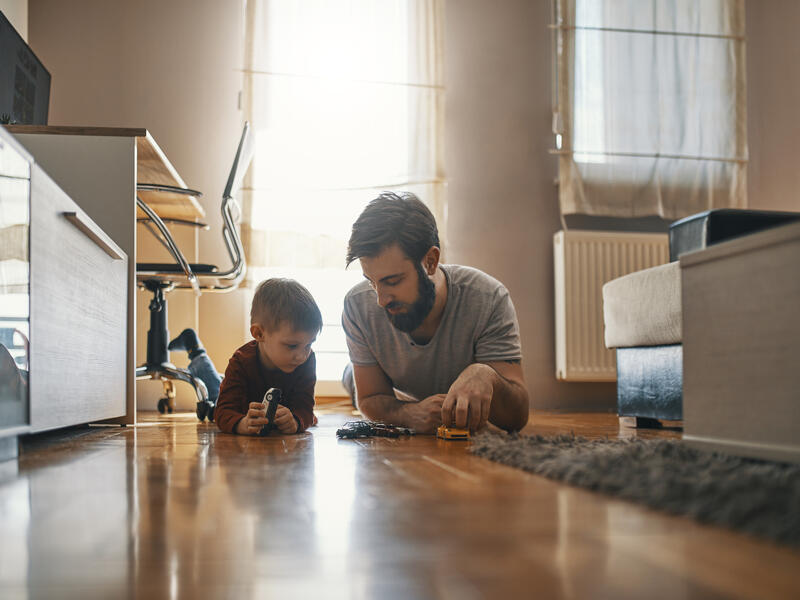Electronic devices that use coin-sized lithium button batteries are all around us – in big brother’s mini remote control, sister’s calculator, Dad’s watch, Mom’s key fob, Grandpa’s hearing aid and even singing birthday cards. These small devices are part of our everyday life.
Coin-sized batteries may provide energy for things we use every day, but they also pose a danger to children and pets. When swallowed, these batteries can cause severe internal burns that can become life threatening.
Know your battery facts and know how to keep your children safe when it comes to button batteries in your home.
Potential risks of button batteries
- When a child swallows a button battery, saliva triggers an electrical current. A chemical reaction starts that can severely burn the esophagus in as little as two hours.
- Your child can still breathe and will act normal after ingesting a battery. It may not be obvious at first that there is something wrong.
- Repairing the damage from battery ingestion is painful and often involves multiple surgeries. Even after a battery is removed, your child can experience harmful side effects to their vocal chords and windpipe.
Keep your home safe
- Search your home for devices that may contain coin-sized lithium button batteries.
- Keep coin lithium battery-controlled devices out of sight and out of reach of young children. This includes devices such as remote controls, singing greeting cards, digital scales, watches, hearing aids, thermometers, older children’s toys, calculators, key fobs, flameless or tea light candles, flashing holiday jewelry or decorations that contain button batteries.
- Keep loose replacement batteries locked away and out of reach of young children.
- Secure the battery compartment of electronic devices that have button batteries with a piece of duct tape.
Get immediate treatment
- If you suspect your child has ingested a battery, go to the hospital immediately. Don’t induce vomiting or have your child eat or drink anything until assessed by a medical professional.
- The symptoms of ingesting a battery may be hard to recognize (symptoms may include coughing, drooling and discomfort). If you suspect your child has ingested a battery, don’t take any chances. Seek medical attention immediately.
The number of visits to emergency departments due to battery-related injuries has more than doubled in the past decade. Keep the phone number for Poison Control (1-800-222-1222) posted on your refrigerator or in your cell phone contact list.
For more information on keeping your home safe, call Sanford Children’s Safety Center at (605) 312-8390 or email parenting@sanfordhealth.org.
Learn more
- Toddler’s throat healing after swallowing button batteries
- Poison safety tips for parents with small children
- A guide to fun, safe gift giving for kids
…
Posted In Children's, Emergency Medicine, Family Medicine, Parenting
